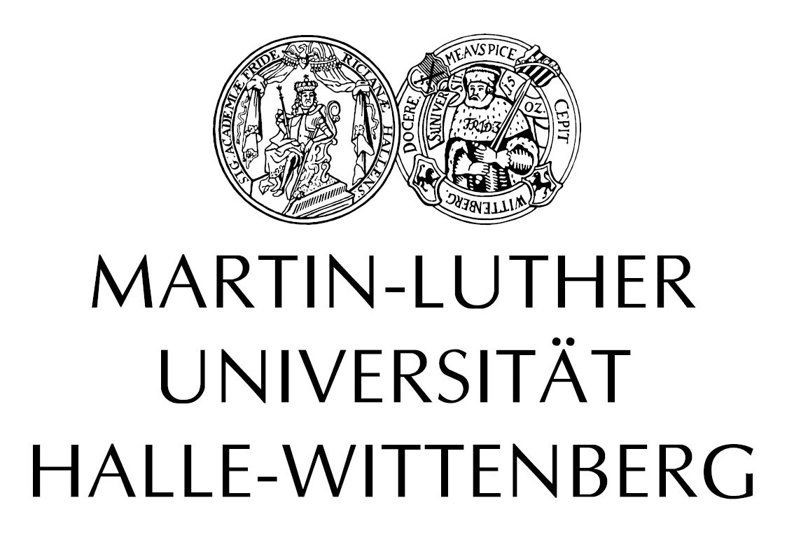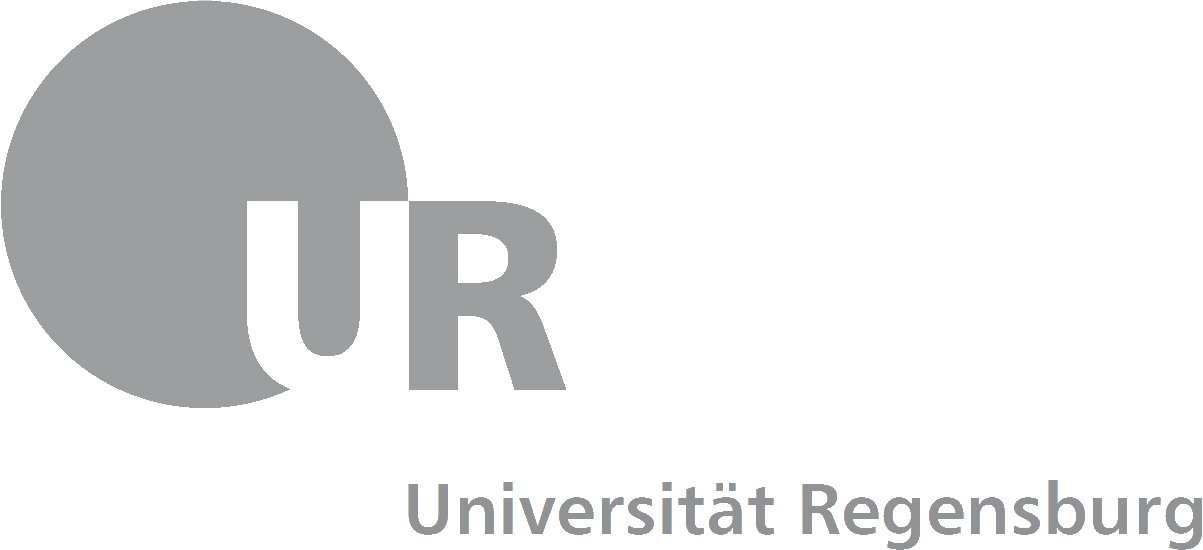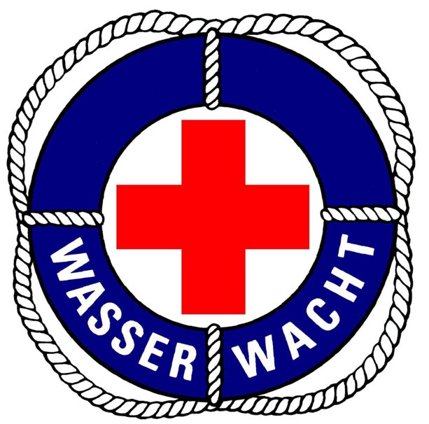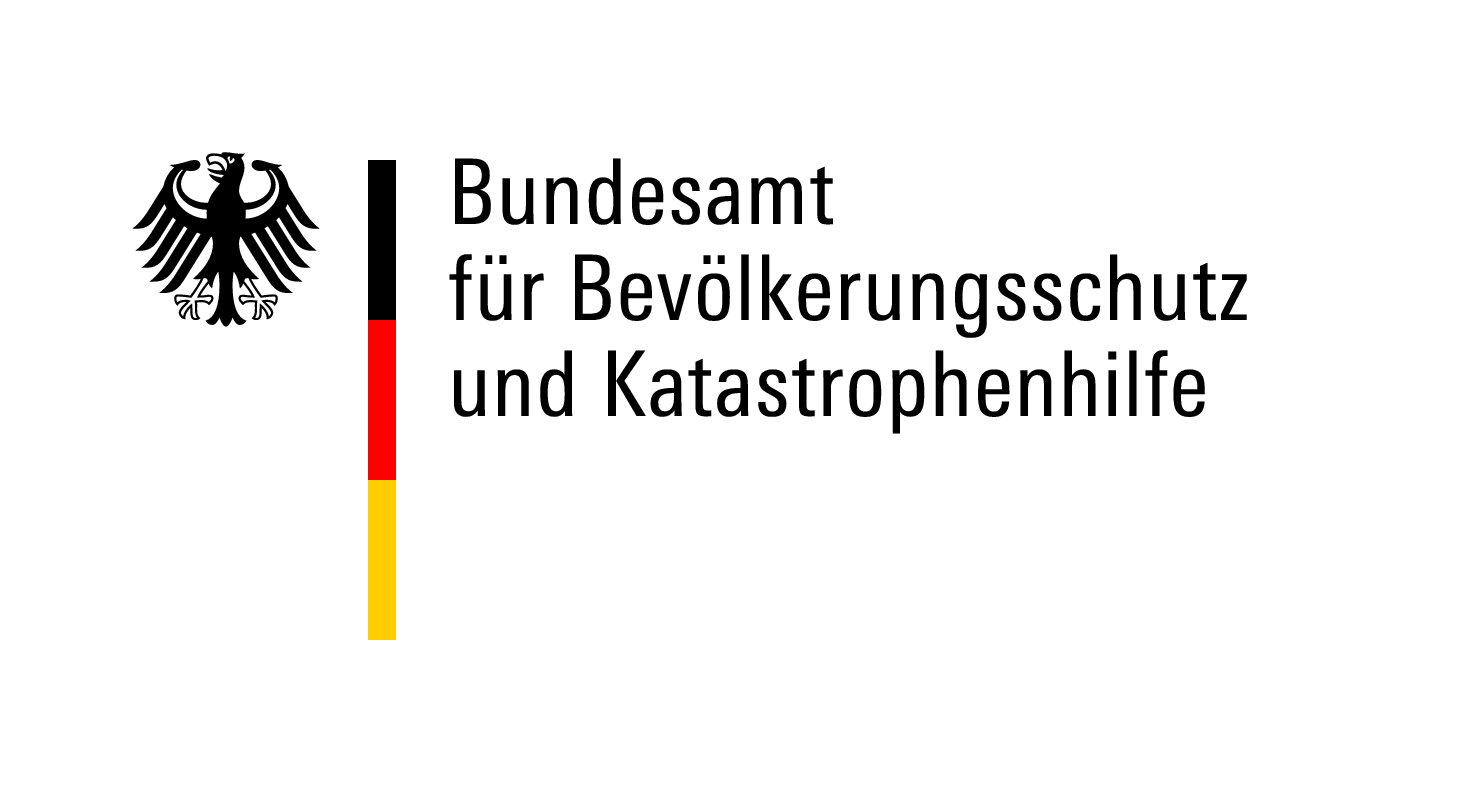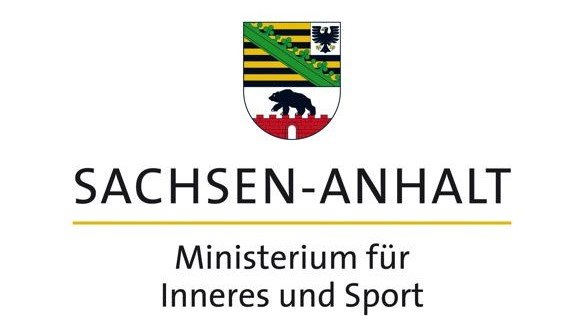KUBAS - Coordination of voluntary helpers to overcome disaster situations
Sponsored by the German Federal Ministry of Education and Research
"Zivile Sicherheit – Erhöhung der Resilienz im Krisen- und Katastrophenfall"
Goal of KUBAS
The KUBAS project aims at coordinating offers of unattached voluntary helpers at disaster sites. A particular focus is set on a better utilization of their potentials for overcoming long-term disaster scenarios arising from natural phenomena and for re-establishing the status-quo-ante. For flooding scenarios, a solution is developed which merges activities of unattached volunteers and activities of institutional relief units as efficient and effective as possible. An optimal integration of unattached voluntary helpers is assured by pursuing a holistic and cyclic solution approach including the phases of preparation, response, and recovery. In addition, the approach takes advantage of state-of-the-art communication technology as well as IT-based decision support.
In its attempts to support the aforementioned goals, the KUBAS system aims at matching available voluntary and professional helpers with the demands specified by (non-police) security authorities. The system will be evaluated in the course of conducting real-world exercises of a flood disaster. The overall goal of the deployment of the KUBAS system is to provide situation-aware support to professional authorities in order to increase the resilience of both voluntary and professional helpers.
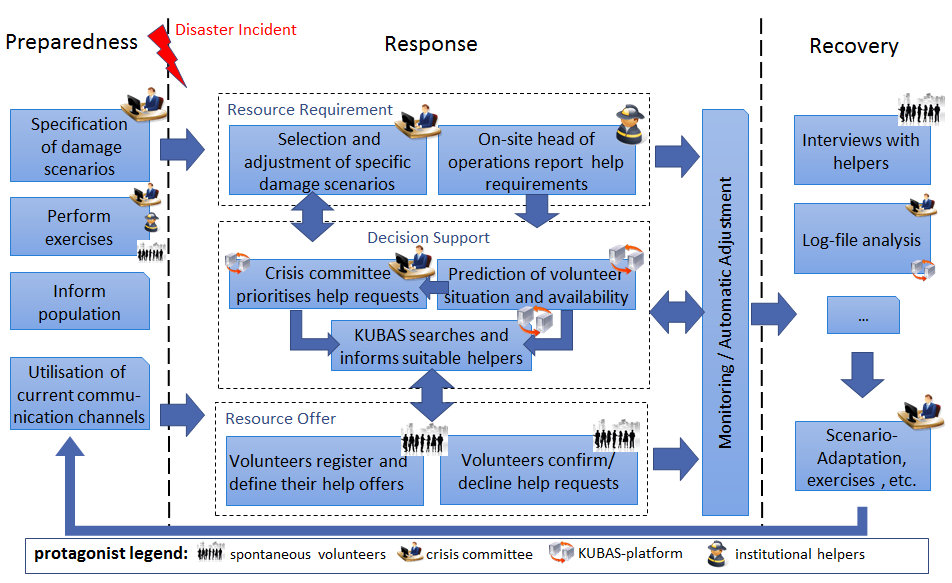
Involvement of voluntary helpers into disaster management
In response to the occurrence of a disaster, operational tasks have to be executed rapidly to recover the safety of persons, the availability of systems and the value of things. Following the “command and control” principle, disaster management requires implementing a hierarchical structure, including a centralized administrative layer (disaster management board).
In the past, the focus of coordination has largely lain on operational-tactical units of a diverse range of authorities while the integration of voluntary helpers into established structures of disaster management has been neglected. Also, prior work on integrating volunteers focusses on „virtual volunteers“, who use social media to provide disaster-specific information. The integration of “physical volunteers”, who support professional helpers on-site and increase the leverage of the overall disaster response activities, are addressed in only a few projects. The effective and efficient integration of these volunteers into the disaster management processes is imperative in order to remain capable of appropriately addressing future disasters and to keep alive the engagement of society. This integration requires, beyond the achievements of prior disaster management projects, having new tools available which (1) allow centralized control for the disaster management board and are easy to use, (2) to appropriately integrate the use of social media and (3) are accepted and used by volunteers.
At the same time, disaster preparedness needs to be adjusted by shifting its focus from registering, managing and organizing volunteers in advance towards creating a platform that can be used in a straightforward, efficient and flexible way.
Members of the research joint project KUBAS
Project Coordinator: Prof. Dr. Stefan Sackmann, Chair of Business Information Management, Martin-Luther-Universität Halle-Wittenberg
- MARTIN-LUTHER-UNIVERSITÄT HALLE-WITTENBERG
- UNIVERSITÄT REGENSBURG
- ESRI DEUTSCHLAND GMBH
- KSB HALLE




